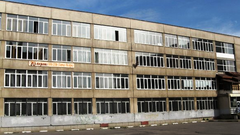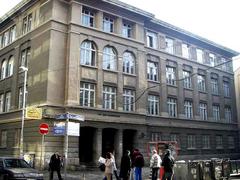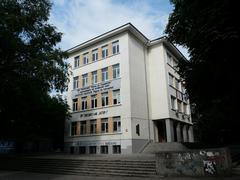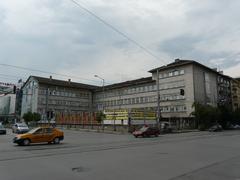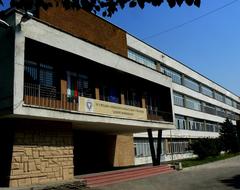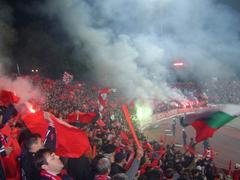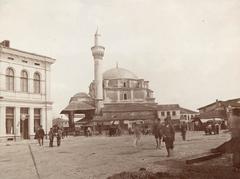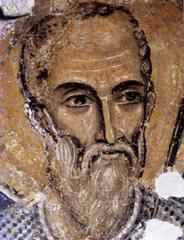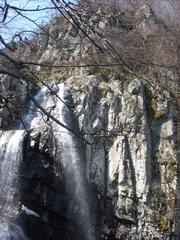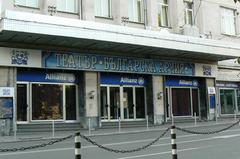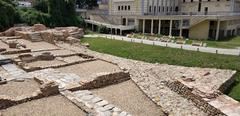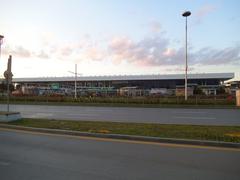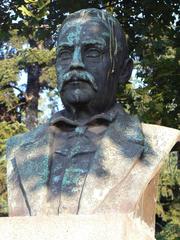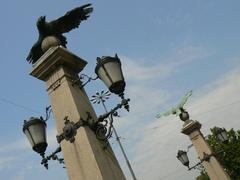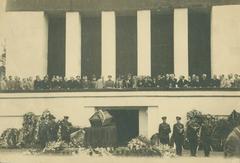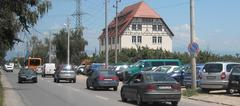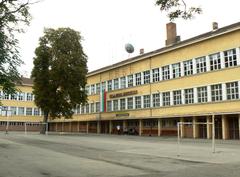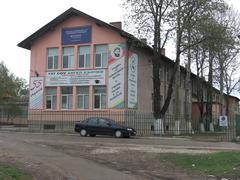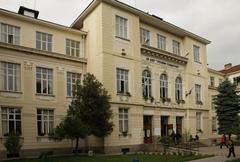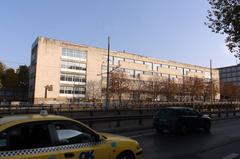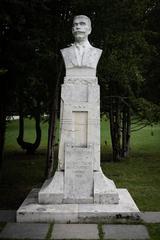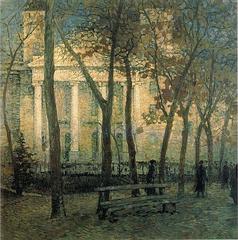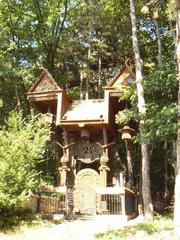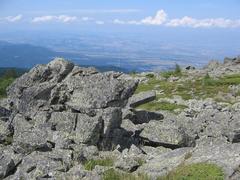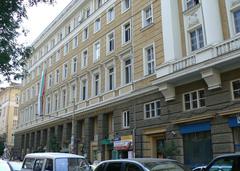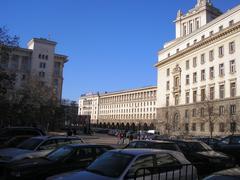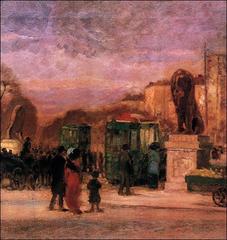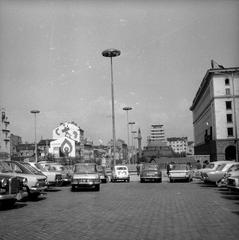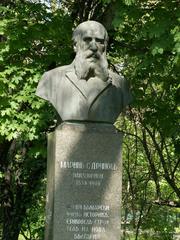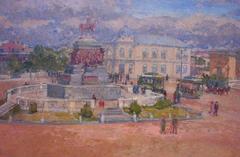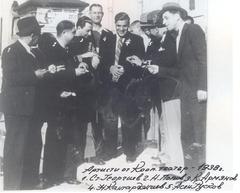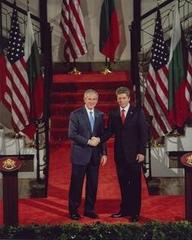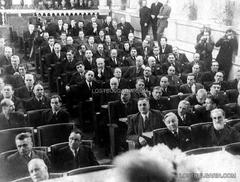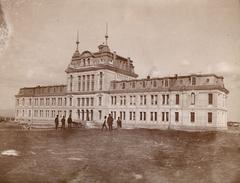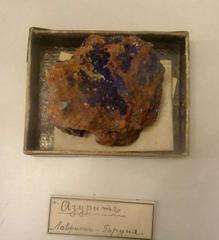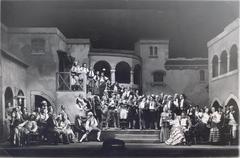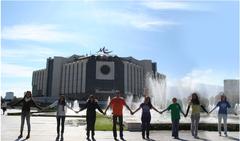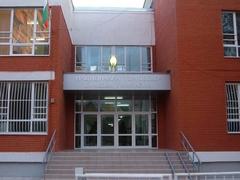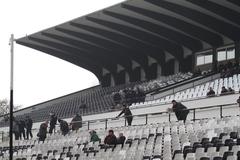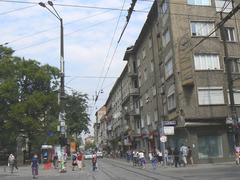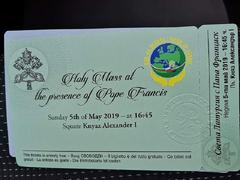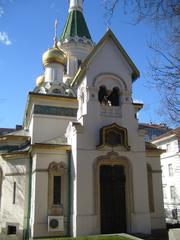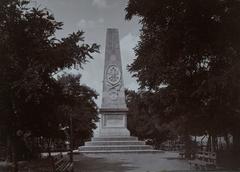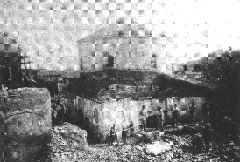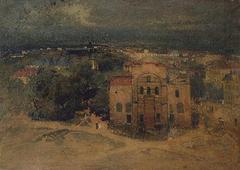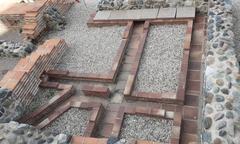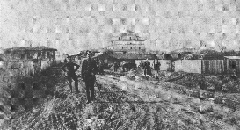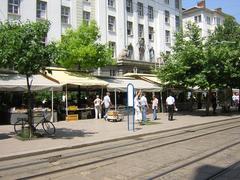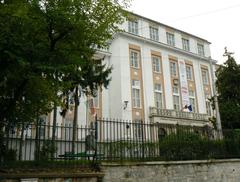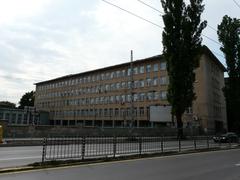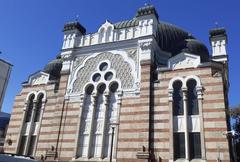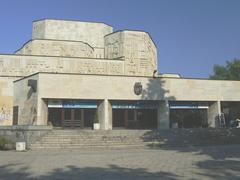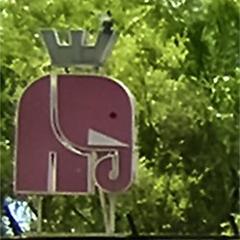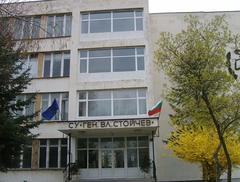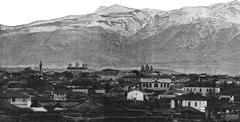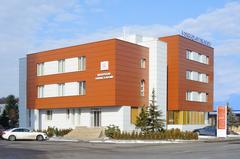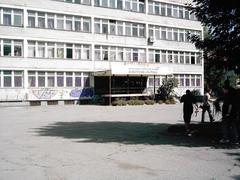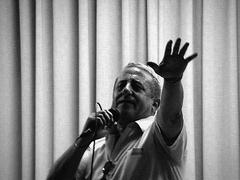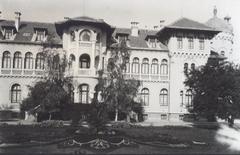
Apostolic Nunciature to Bulgaria, Sofia: Visiting Hours, Tickets, and Essential Tips
Date: 04/07/2025
Introduction
Located at the heart of Sofia, the Apostolic Nunciature to Bulgaria serves as the official diplomatic mission of the Holy See to the Republic of Bulgaria. While its primary role is diplomatic and ecclesiastical, the Nunciature’s presence is interwoven with the city’s rich religious and cultural heritage. This comprehensive guide explores the Nunciature’s historical significance, diplomatic functions, visitor information, and tips for exploring the surrounding area, helping travelers and those interested in Bulgaria’s Vatican connections to navigate their visit effectively.
For official information, see the Vatican’s diplomatic directory, and for general tourism resources, visit the Bulgarian Tourism Board and Sofia City Guide. Further details on Bulgaria–Holy See relations are available from Diplomatic Spectrum.
Table of Contents
- Historical Overview
- Location and Architectural Significance
- Can You Visit the Apostolic Nunciature?
- Visiting Hours, Tickets, and Entry Requirements
- Accessibility and Visitor Conduct
- Nearby Attractions and Tourist Activities
- Practical Tips: Language, Safety, and Etiquette
- Frequently Asked Questions (FAQ)
- Conclusion and Recommendations
- References and Further Reading
Historical Overview
The Apostolic Nunciature to Bulgaria was formally established in 1925, marking the beginning of official diplomatic ties between the Vatican and Bulgaria (Diplomatic Spectrum). The building housing the Nunciature has served as the Vatican’s diplomatic base since the 1930s, with its first notable occupant being Monsignor Angelo Roncalli—later Pope John XXIII—who played a pivotal role as Apostolic Visitor and Delegate.
Diplomatic activity was interrupted during Bulgaria’s communist era, particularly after 1949, when the Nunciature lost recognition, and its property was expropriated (Wikipedia: Bulgaria–Holy See relations). Despite these challenges, discreet diplomatic dialogue persisted. Following the fall of communism, full relations were restored in 1990, and the Nunciature resumed its mission of fostering interfaith dialogue, supporting Bulgaria’s Catholic minority, and promoting social initiatives. High-profile visits, such as Pope John Paul II’s 2002 trip, have further highlighted the Nunciature’s role in bridging East and West.
Location and Architectural Significance
The Apostolic Nunciature is centrally located at ul. 11 August 6, Sofia, within the city’s diplomatic quarter and near prominent landmarks such as the Alexander Nevsky Cathedral (GCatholic). The Nunciature’s exterior is modest and dignified, exemplifying the Vatican’s understated diplomatic style. Its strategic location makes it a point of interest for those exploring Sofia’s religious and historical landscape, despite not being a public monument or tourist attraction.
Can You Visit the Apostolic Nunciature?
The Nunciature is not generally open for public tours or casual visits. As a diplomatic mission, access to the interior is limited strictly to official business, religious delegations, or by advance appointment for consular or special events (Vatican’s diplomatic directory). Visitors interested in the Nunciature can view and photograph its exterior, but should be mindful of its diplomatic status and surrounding security measures.
Visiting Hours, Tickets, and Entry Requirements
- Public Visiting Hours: There are no public visiting hours; the Nunciature is not a museum or tourist site.
- Tickets/Admission: No tickets or entry fees are applicable, as public access is not permitted.
- Appointments: Visits for official, ecclesiastical, or academic purposes must be arranged in advance via phone or email. Be prepared to state the purpose of your visit and provide identification.
- Contact: +359-2 981 17 43; see official Vatican page for up-to-date contact details.
Accessibility and Visitor Conduct
- Access: The Nunciature is easily reachable by public transport, taxi, or on foot from Sofia’s central hotels. The nearest metro stop is “Sofia University St. Kliment Ohridski,” about a 10-minute walk away (Sofia Urban Mobility Center).
- Security: Expect security checks, including metal detectors and bag inspections. Photography is prohibited within the premises and immediate vicinity unless explicitly permitted.
- Dress Code: Modest, formal attire is required; men should wear long trousers and collared shirts, women should avoid sleeveless tops and short skirts. Silence and decorum are expected, especially during religious or diplomatic meetings.
- Accessibility for Disabilities: The building is historic and may pose challenges for visitors with mobility impairments. Contact the Nunciature ahead for specific arrangements (Accessible Bulgaria).
Nearby Attractions and Tourist Activities
Though interior visits to the Nunciature are restricted, its central location offers convenient access to many of Sofia’s most significant historical and religious sites:
- Alexander Nevsky Cathedral: Sofia’s iconic Orthodox cathedral, renowned for its golden domes and architectural grandeur (Alexander Nevsky Cathedral).
- St. Sofia Church: One of the oldest churches in the city, dating back to the 6th century.
- Banya Bashi Mosque: A symbol of Sofia’s religious diversity.
- National Gallery and National Assembly: Both within walking distance, offering insights into Bulgarian art and political history.
- Doctor’s Garden Park: A tranquil green space for relaxation.
- Local Cafés and Restaurants: Enjoy Bulgarian cuisine at nearby venues such as “Shtastlivetsa” and “Made in Home” (Tripadvisor Sofia Restaurants).
Guided walking tours of Sofia’s religious district often include a stop outside the Nunciature and provide historical context for the area.
Practical Tips: Language, Safety, and Etiquette
- Language: Bulgarian is the official language, but English and Italian are widely spoken in diplomatic settings. Arrange for translation if needed.
- Currency: Bulgaria uses the lev (BGN). Taxis and public transport are affordable; use licensed taxis or ride apps to avoid scams.
- Safety: Central Sofia is safe, particularly the diplomatic quarter. Standard precautions against pickpocketing apply.
- Etiquette: Formal titles (e.g., “Your Excellency”) are used for clergy and diplomats. Be respectful, avoid sensitive political or religious discussions unless invited, and maintain decorum during any official or religious events (Travel Avocado).
Frequently Asked Questions (FAQ)
Can I visit the Apostolic Nunciature as a tourist?
No, general tourism or casual visits are not permitted. Access is limited to those with official appointments.
Are there guided tours of the Nunciature?
No, but walking tours of Sofia’s religious sites may include information about the Nunciature when passing by.
Is there an admission fee or tickets required?
No, as there is no public access, there are no tickets or fees.
What are the best nearby sites to visit?
Alexander Nevsky Cathedral, St. Sofia Church, Banya Bashi Mosque, the National Gallery, and Doctor’s Garden Park.
Does the Nunciature offer consular services?
It does not issue visas or passports but may assist with ecclesiastical documentation or church-related matters.
Is the building accessible to people with disabilities?
Accessibility is limited; contact the Nunciature in advance to discuss specific needs.
Conclusion and Recommendations
The Apostolic Nunciature to Bulgaria in Sofia exemplifies a unique blend of diplomacy, spiritual mission, and cultural heritage. While not accessible for standard tourism, the Nunciature’s dignified presence and its enduring role in Bulgaria’s religious and diplomatic history make it a meaningful landmark for visitors walking Sofia’s historic center. By appreciating its exterior and exploring nearby attractions, travelers can gain deeper insight into Bulgaria’s diverse religious landscape.
For official visits, always arrange appointments well in advance and adhere to all security and etiquette requirements. To enhance your exploration of Sofia, leverage digital resources such as the Audiala app for up-to-date travel guides and local tips.
References and Further Reading
- Apostolic Nunciature to Bulgaria in Sofia: Visiting Hours, History & Tourist Information
- 25 Years of Diplomatic Relations Between Bulgaria and the Holy See – Diplomatic Spectrum
- COMECE Welcomes Archbishop Auza’s Appointment as Apostolic Nuncio
- Apostolic Nunciature to Bulgaria – Vatican Diplomatic Directory
- Apostolic Nunciature in Sofia Displays Condolence Book in Memory of Pope Francis – BTA News
- Wikipedia: Bulgaria–Holy See relations
- GCatholic.org: Apostolic Nunciature to Bulgaria
- Bulgarian Tourism Board
- Sofia City Guide
- Alexander Nevsky Cathedral
- Sofia Urban Mobility Center
- Accessible Bulgaria
- Tripadvisor Sofia Restaurants
- Travel Avocado – Cultural Etiquette
- Sofia Adventures – Travel Tips
- BNR article
Image captions (to be included with photos):
- Exterior view of the Apostolic Nunciature to Bulgaria in Sofia. (Alt text: Apostolic Nunciature to Bulgaria building facade in Sofia)
- Alexander Nevsky Cathedral near the Nunciature. (Alt text: Alexander Nevsky Cathedral in Sofia)
- Banya Bashi Mosque, showcasing Sofia’s religious diversity. (Alt text: Banya Bashi Mosque in Sofia)

